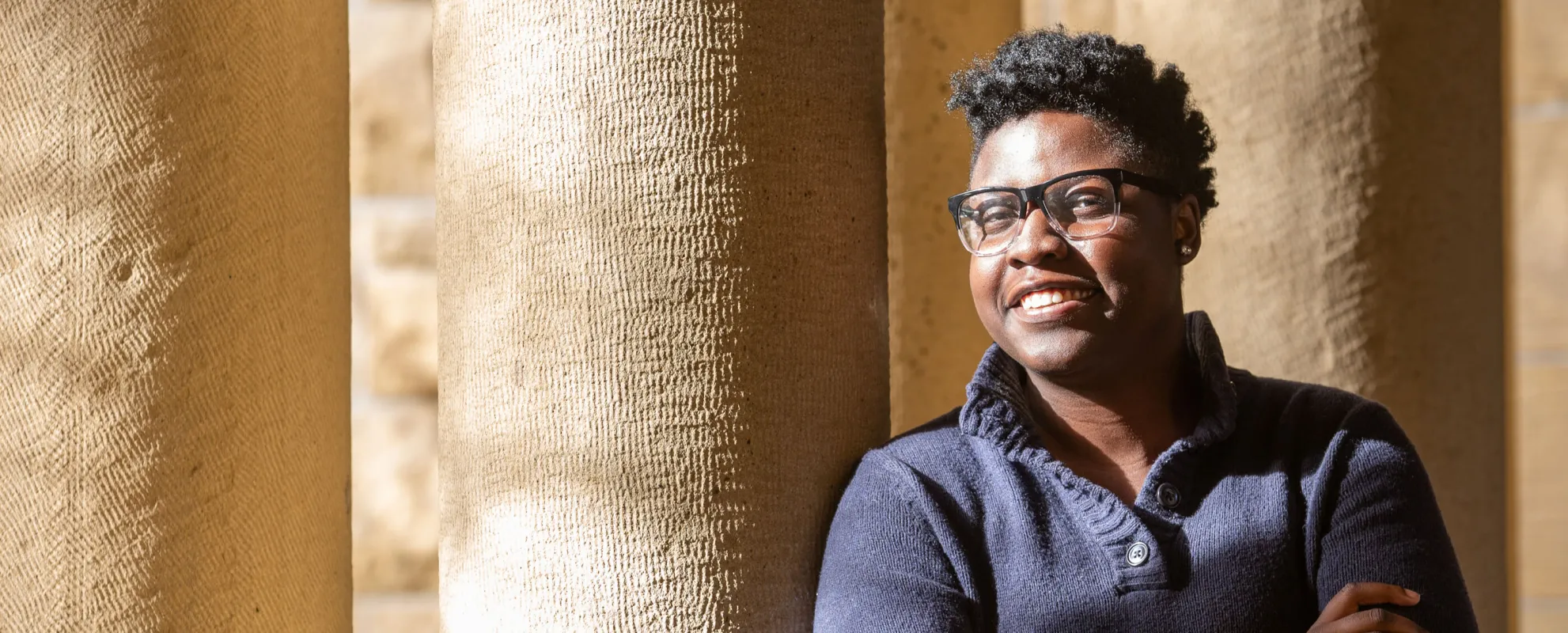Growing up in the Chicago suburbs, Jess Adepoju found video games to be a rich portal to alternative realities.
Sometimes, taking on a digital persona — often a male character — helped her temporarily forget about her parents’ divorce or the insecurities of being a teenager. Other times, she relished getting lost in storylines that sparked her imagination and exposed her to other cultures (playing Japanese role-playing games inspired her to learn the language in school). Games were also a way to connect with her sister, also a gaming aficionado, and virtual friends in faraway places.
“It gave me confidence in the absence of other sources of confidence as a teen,” she said.
Now Adepoju, who will graduate from Stanford GSB this spring, is set to transform her passion for gaming into a career. In August, she will join Activision Blizzard, the gaming giant behind franchises such as Call of Duty and World of Warcraft, for an accelerated, two-year rotational program for business school graduates headed for leadership positions in the company. As a queer woman of color, Adepoju eventually wants not only to serve as a trailblazer in the gaming industry, but also to influence the kinds of games it produces.
She has also served as copresident of GSB Pride, the business school’s LGBTQ+ student group, and as copresident of the GSB Game Club, which supports students with a personal or professional interest in gaming.
You’ve described yourself as a “complete gamer nerd” from a young age. What made you realize you could turn your hobby into a career?
When I was in college at the University of Chicago, I randomly took a class on gaming and storytelling. My classmates and I ended up forming the Game Changer Chicago Design Lab, a student venture that developed educational games for schools on the South Side. We created games that inspired kids to “play through” challenging scenarios, such as responding to school shootings or planting gardens in low-income urban environments. I was always fascinated by computers and technology, but that was when I started thinking about gaming from a professional standpoint. It’s one thing to consume media and another thing to create it — it was very empowering. I discovered I was kind of good at it, and it made me happy to have a positive impact on the world.
White men still represent the majority of main characters in video games and, probably not coincidentally, dominate game development companies. Why do you think the gaming industry has continued to struggle with workforce diversity?
One reason is that some members of the industry still take the position of, “How is it our responsibility to make this change? We simply hire the best fit for the role — people who’ve been gaming all their lives — and that tends to be guys.” That’s a fair point, but as institutions that are not only the ones hiring but also the ones pumping out content that kids play, large gaming and tech companies need to accept how important they are to these circular hiring outcomes that undermine marginalized communities in the long term. Several companies are beginning to take on that responsibility, and some of the games coming out now feature well-rounded female characters, usually driven by a female leader on the development or publishing team.
What are the right and wrong ways to address this challenge?
Just hiring more women is going to fix a lot of this. You’ll see more women in games and, frankly, less crap because you have more than one perspective in the room. I think lecture-based trainings on discrimination and harassment are the worst ways to go about it. A much better approach is training that leverages gamification, such as improv exercises or virtual reality simulations — something interactive that creates daily habits. You need to set a culture of inclusivity, not just have new hires sit down and click right.
As a queer Black woman, have you always felt accepted in the gaming world, as a player and in the workplace?
On a conscious level, I’ve always felt at home in the gaming community. When I was working at Activision Blizzard over the summer [as a product management and marketing intern], I was over the moon because casual conversations were about the newest games coming out — the things that overlap with my personal interests. Unconsciously, though, there are still barriers for people like me. For example, when I played massive multiplayer online role-playing games as a kid, I always played as a male character because women were caricatures. And these days, when I play Fortnite, I still never turn on my microphone — because you read about so many negative interactions for women playing games online. But gamers today are an increasingly diverse cohort, and I’ve ridden that happily. The term no longer necessarily refers to a white 12-year-old boy; these days, women represent 48% of gamers. I was there before the community was diverse, and I’m still here now. And I would love to help drive the direction the industry is moving in.
What kind of impact do you want to have in the gaming world?
I want to start a research and development studio that collects data from gamers and helps the scientific community learn more about society through that process. There’s a lot of work like this being done around mental health, but my interest is in interpersonal relationships, including race relations. I also think there’s an opportunity for game development companies to have more impact by supporting connections between players and helping them reflect on their behavior. For example, Fortnite is an every-man-for-himself survival game, and players can be either selfish or altruistic. Making those behaviors more salient as they play can have an effect in the real world.
Photos by Kiefer Hickman


